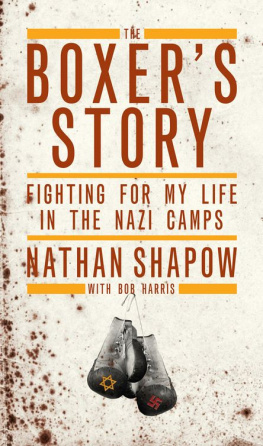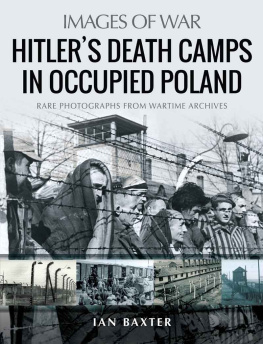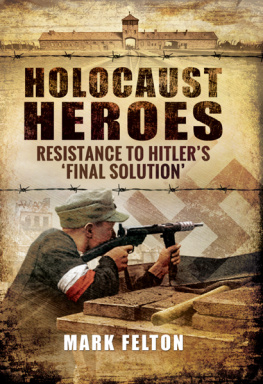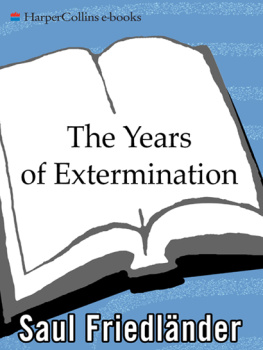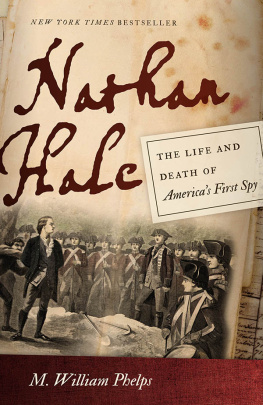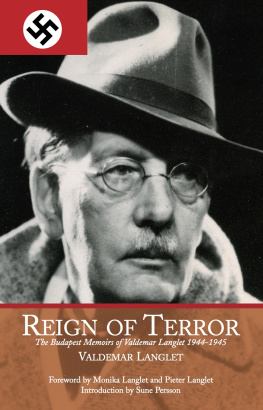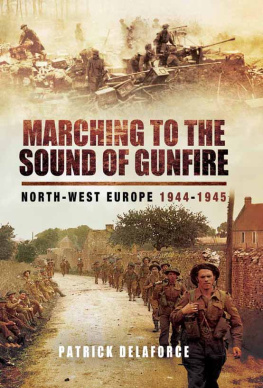N athan Shapow and Bob Harris would like to acknowledge the unstinting help of Nathans wife Hela Shapow, his daughter Adina and especially his son Mike, whose enthusiasm got the show on the road, as well as the late Isidor Nussenbaum, Shulam Sorkin, Annette Segal and Bobs sounding boards, David Pleat and Jonny Dexter. Special thanks also go to Bobs literary agent, Robert Smith, and last, but by no means least, a massive hand to Jeremy Robson and his excellent staff at the Robson Press, including designer Namkwan Cho for his brilliant cover and painstaking editor Reuben Cohen.
F rom time to time, even in the life of a professional writer accustomed to tales of heroism and extraordinary stamina, one comes across a story so powerful and emotive that it forces you to question your own values, makes the world seem a very different place. It has been my great fortune, as a veteran sportswriter, to meet many of the worlds outstanding athletes, to recount the tales of lives devoted to competition, struggle and victory often heroic in their own ways. But Nathan Shapows heroism, for all that it stemmed in some part from athletic prowess and great talent as a boxer, was of a different order.
We hear so often of the Holocaust, and the approximately six million Jews slaughtered by the Nazis, that it is easy to forget they were not some homogeneous mass of victims without names, but individuals. Rabbis, lawyers, writers, artists, scientists, children, atheists and the deeply religious: the Jewish victims of the Holocaust were human beings, as were those who survived. The stories of survivors are always moving, inspirational stories of evading the brutal Nazi genocide that the late Pope John Paul II argued proved the existence of Satan. Amongst them is the story of Nathan Shapow or Nachke to his comrades a Riga-born Jew who fought for his life in the Latvian Ghetto, a series of concentration camps, and went on to fight for the creation of the State of Israel.
It was through my friendship with his son Mike that I was introduced to Nathan, and to the idea of writing his book. I travelled to Los Angeles for an initial discussion and, as politely and discreetly as I could, asked about his experiences in the war. You dont want to know, he would answer. I learned that this had often been his answer, too, to Mike and Adina, his daughter. But slowly, over time, he began to speak of what hed been through, in Latvia, Germany, France and the battle for Israels independence. It is a story of such strength and defiance in the face of overwhelming force and evil that at times, I found it difficult to believe. Nathan faced death time and time again as a prisoner, a warrior, and for the simple reason of his being Jewish and his story was, as the reader will see, one of such fortitude and a stubborn will to live that my journalistic instincts led me to check some of his claims. To my amazement, it transpired that if anything, he had understated the extent of what hed been through and the bravery with which he fought, not just for his own survival, but to protect and save as many of his fellow Jews as he could. No wonder he was known as The Strong One or, in Yiddish, Shtarker. The latter strikes me as by far the better word, as it echoes the English word stark: and Nathans strength, deployed in battle amidst the starkest times of modern history, manifested in stark, dark terms indeed.
I am a sportswriter, not a historian and this is not a work of academic history. It is one mans story, which touched on many other lives, and a story that has yet to end, for Nathan, now in his nineties, still lives in California, in proximity to the Hollywood producers and directors who would surely jump at such a story if it were presented to them as a novel.
However, this is not fiction, but one mans extraordinary story, told from memory, not an attempt to record the whole history of the Holocaust in Latvia and beyond, nor the creation of the State of Israel. It is the story of a family man who lost his mother and two brothers to the cruelties of Nazism and communism, a man who fought back, embodying the famous words of Winston Churchill: Never give up. Never give up. Never, never, never give up. His persistence and courage were the traits of a true hero, but, for all the tragedy he lived through, not a tragic one: his marriage, children, grandchildren and great-grandchildren attest to his triumph, and it is my great privilege to have been granted access to his life story, with all its twists and turns.
Nathan Shapow said nothing of the story in these pages till late in a long, ongoing life: although I did not, for a long time, think myself to be the appropriate author of such a work, it has been an honour and a life-changing experience to hear and help him tell his story. It is an epic of survival, and gentile that I am, an epic that has helped me understand why Israel fights, continually, to preserve the achievements of Nathan and his comrades, the men and women who walked from the gates of Bergen-Belsen and Auschwitz, traumatised and wounded, and went on to fight, securing their own nation-state.
There will, no doubt, be errors and mistakes, most of them mine, within this book, but I have no doubt that the story of Nathan Shapow, The Strong One, is a true and truly remarkable odyssey.
BobHarris, 2012
F or more than sixty years I kept the secret, telling no one. Not Hela, my beloved wife, a survivor of Auschwitz and Belsen, nor our children Mike and Adina. I never breathed a word of it, not to those I loved most, or those who would have surely understood, my fellow concentration camp survivors, amongst them many of my closest friends in our adopted country, the United States.
I have always been open about the fact I killed as a soldier in Israels War of Independence and the young states battles with her neighbours, fighting the British, the Arabs of Palestine and their allies. Such is the collateral damage of any war. What I kept to myself until now was the day, long before I had seen Israel or America, when I committed murder; cold-blooded and premeditated murder.
Obersturmfhrer Hoffman was a self-important SS officer who took great delight in beating defenceless Jews in the Riga Ghetto. For some reason, I was amongst his favourite targets. Perhaps he could not stand to see my attitude, for I neither looked nor felt like the Nazis stereotype of the racially inferior, degenerate Jew. I was young, strong as an ox from years of football, swimming and boxing, and carried myself like an athlete. Though imprisoned in the Ghetto, a slave labourer, I was not cowed, despite being incarcerated in my home city by a foreign army which wanted nothing less than world domination and the liquidation of the Jews. By October of 1941, just months after the Nazis came to Latvia, over 30,000 Jews had already been murdered. Those of us still alive had been selected to first serve the Nazis as slave labourers, before we joined the dead.
I had survived so far for the very same reason that Obersturmfhrer Hoffman loathed me with such passion. I was known as Nachke, a Shtarker, one of the so-called strong ones in the Latvian Jewish Ghetto, strong from years of training as a boxer in the Jewish sporting organisation Maccabi and the Zionist Youth Movement Beitar. Before they could eliminate all Baltic Jews, the Nazis used those of us they could as disposable slave labour, and my years of sport made me useful when it came to shifting lumber, breaking rubble, loading and unloading supply trains. But staying strong meant staying healthy which, in the Ghetto, was possible only by way of stealing food.
The camp authorities provided us with bare subsistence rations, a daily quarter slice of bread and a soup of lukewarm water flavoured with potatoes. It was hardly enough to live on, let alone to keep the strength required to work twelve-hour shifts of back-breaking physical labour, under the watchful eyes of German guards and Kapos the lowest of the low, treacherous Jews and Latvians who policed the camps. They were prisoners themselves but, in return for informing on and beating inmates, received better rations than the rest of us, and gifts of alcohol and cigarettes. The Kapos were encouraged to be brutal in administering discipline in the camps: many were criminals, rapists, murderers and sadists, released from Rigas jails by the Gestapo and selected for their violent natures. They often seemed determined to prove themselves more brutal than their SS overseers.

